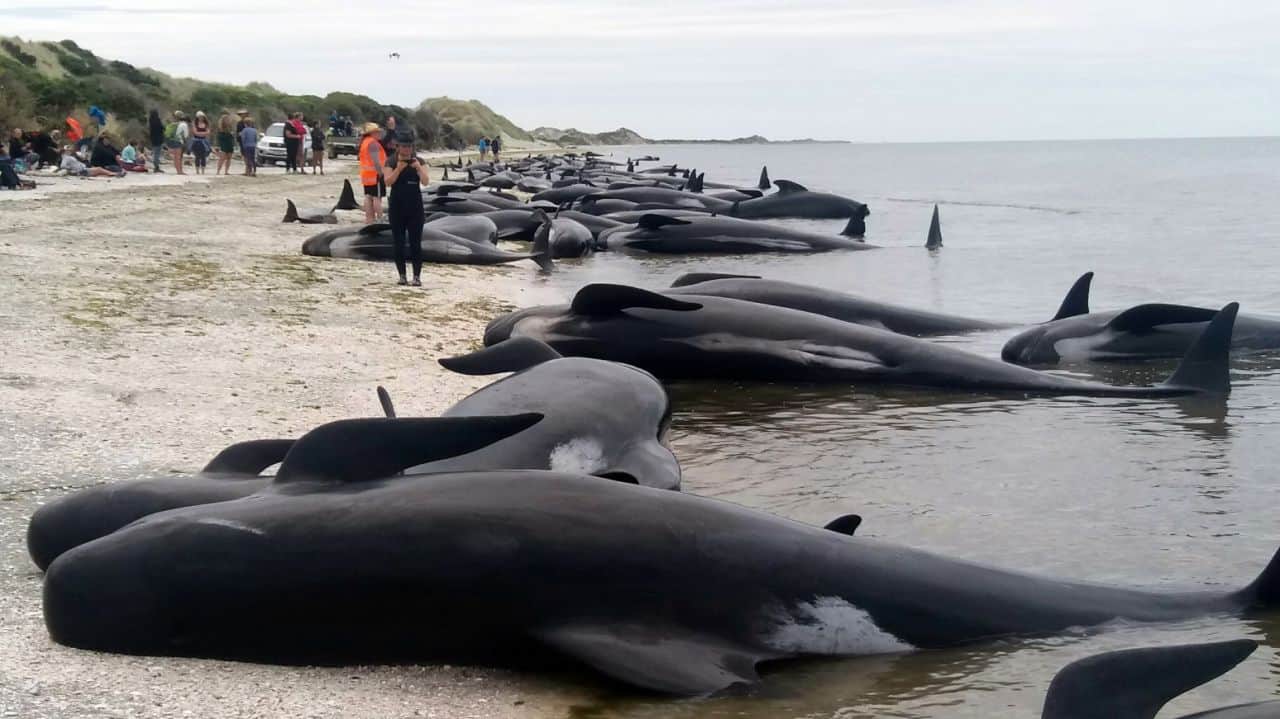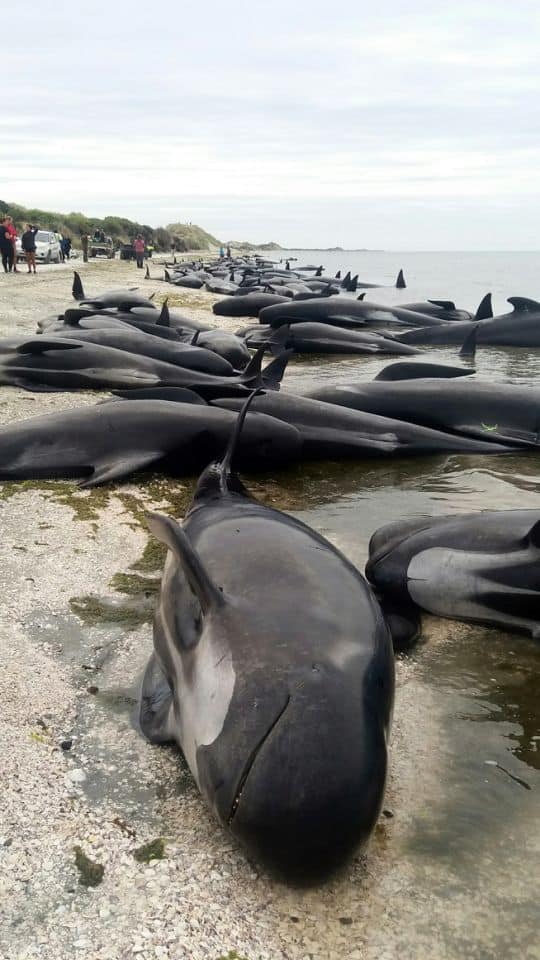
After 300 pilot whales were found dead on a New Zealand beach, with a further 140 found struggling for survival on the coast on Friday, a further 240 arrived the following day, making the situation even worse. Magazine writer and editor Cheree Morrison stumbled across the scene as she took a pre-dawn trip to capture the sunrise, accompanied by a photographer and guide. She described the scene before her, claiming that it was the sounds of soft sighs and cries that first struck her before she ventured closer and saw the full extent of what has been described as one of the worst whale strandings in the nation’s history. She said,
“You could hear the sounds of splashing, of blowholes being cleared, of sighing. The young ones were the worst. Crying is the only way to describe it.”
The scene, which was found on Friday on Farewell Spit at the tip of the South Island, very quickly attracted many local people as the daylight hours crept in, with hundreds of farmers, tourists, and teenagers urgently racing to keep the surviving 140 whales alive. For hundreds of yards along the beach, there were adult and baby whale carcasses that were three or even four deep in some places. Morrison waded into the water in her denim jeans, doing whatever she could to try to maneuver the whales that were still breathing, so that they were more upright which would help them breathe easier. She claimed,
“I walked away crying my eyes out. We knew there were limited things we could do.”

She quickly alerted the authorities and volunteers soon arrived in wetsuits, equipped with buckets. The volunteer rescue group, called Project Jonah, said that a total of 416 whales had been stranded. As the tide came in, the volunteers managed to refloat around 50 of the surviving whales, whilst another 80 or 90 remained beached. Following their initial attempts, the volunteers proceeded to form a human chain in the water in order to try and stop the whales from swimming back to the shore and becoming stranded again. They continued to refloat as many of the surviving whales as they could. The Department of Conservation claimed that around 500 volunteers had joined conservation workers on the beach to try to save the whales. As their efforts continued, they tried to keep the surviving stranded whales damp and cool by covering them with blankets and dousing them with buckets of water from the sea.
According to reports, whale strandings occur most years in this area, but the scale of the recent event has come as a shock. One crucial reason as to why the strandings happen so often in this area is due to the shape of the coast. Farewell Spit is a sliver of sand which arches in a hook shape into the Tasman Sea. It seems to confuse whales, which make it a site of frequent mass strandings. There are also many different theories as to why whales get stranded, including chasing prey too far inshore or trying to protect a sick member of the group, which results in a big group getting stuck. The shape of the coastline then makes it difficult for whales to navigate away from it once they have gotten too close.
With the arrival of the additional stranded whales on Saturday morning, more than 300 of the 400 whales have died. Medics and members of the public are currently working tirelessly to keep the remaining whales alive. Whilst they are waiting for the next high tide in daylight on Sunday to move the survivors back out to sea, conservation workers have said that many of the surviving whales would probably be in bad shape, and are likely to deteriorate the longer than they remain stranded, making it incredibly crucial to get them back out into the ocean as soon as possible.
What are your thoughts? Please comment below and share this news!
This article (Hundreds Of Whales Are Currently Stranded On A Beach In New Zealand) is free and open source. You have permission to republish this article under a Creative Commons license with attribution to the author and TrueActivist.com


